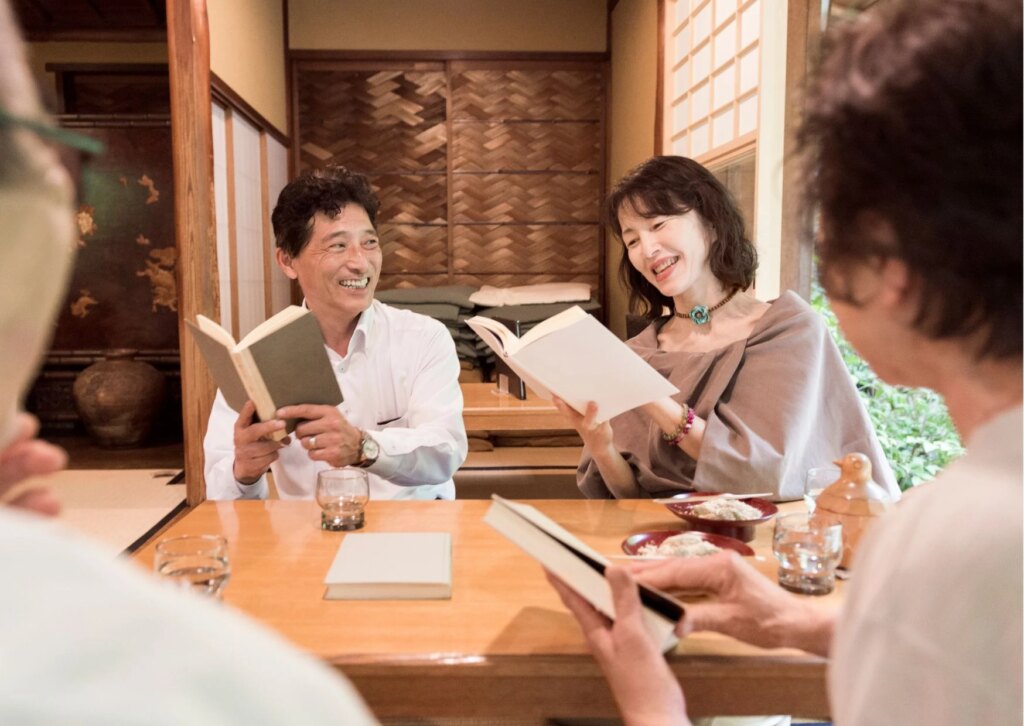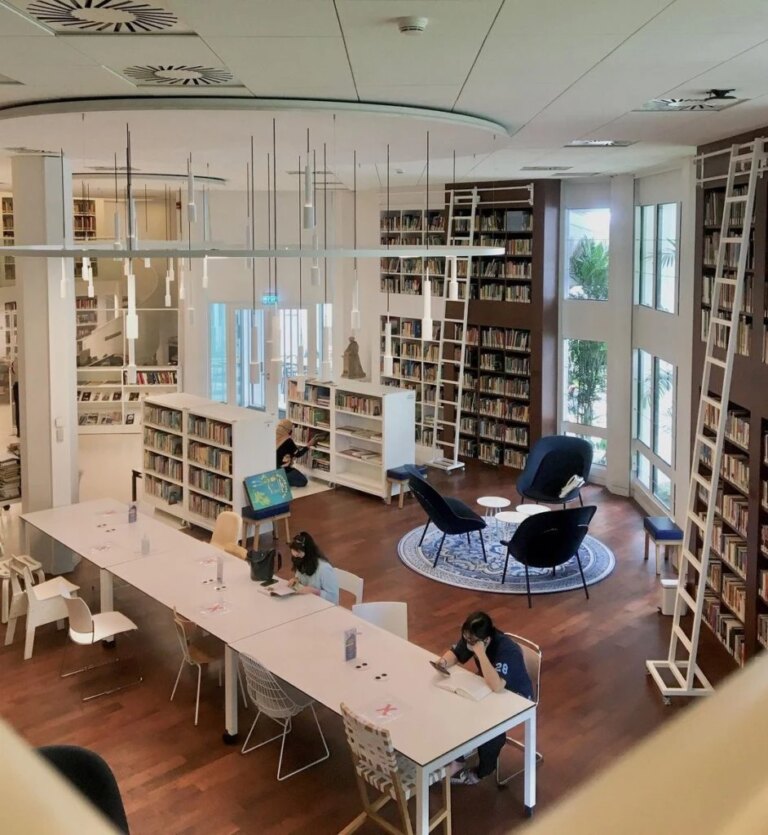Discover 10 untranslatable Japanese words that beautifully express everyday feelings and moments you’ve had—just never had the perfect word for.
Every language has a little secret stash of words that just don’t translate neatly into English. Whether they’re slang or just words with meanings that don’t correlate directly to their actual meaning, some words simply don’t make sense to us.
Japanese, in particular, offers a treasure trove of poetic, oddly specific, and sometimes hilariously relatable terms that perfectly capture feelings or experiences we’ve all had but never had the specific words for.
So, whether you’re a language nerd, a fan of Japanese culture, or just looking to impress your friends with cool vocabulary, here are ten untranslatable Japanese words you need to know.
Kuchisabishii (口寂しい)
This one is super relatable. Picture this: it’s late, or it’s the weekend, and you’re reading a book or scrolling mindlessly through TikTok when you absent-mindedly reach for the chips. You’re not even hungry. Not really… Well, that, my friend, is kuchisabishii — literally, “lonely mouth.”
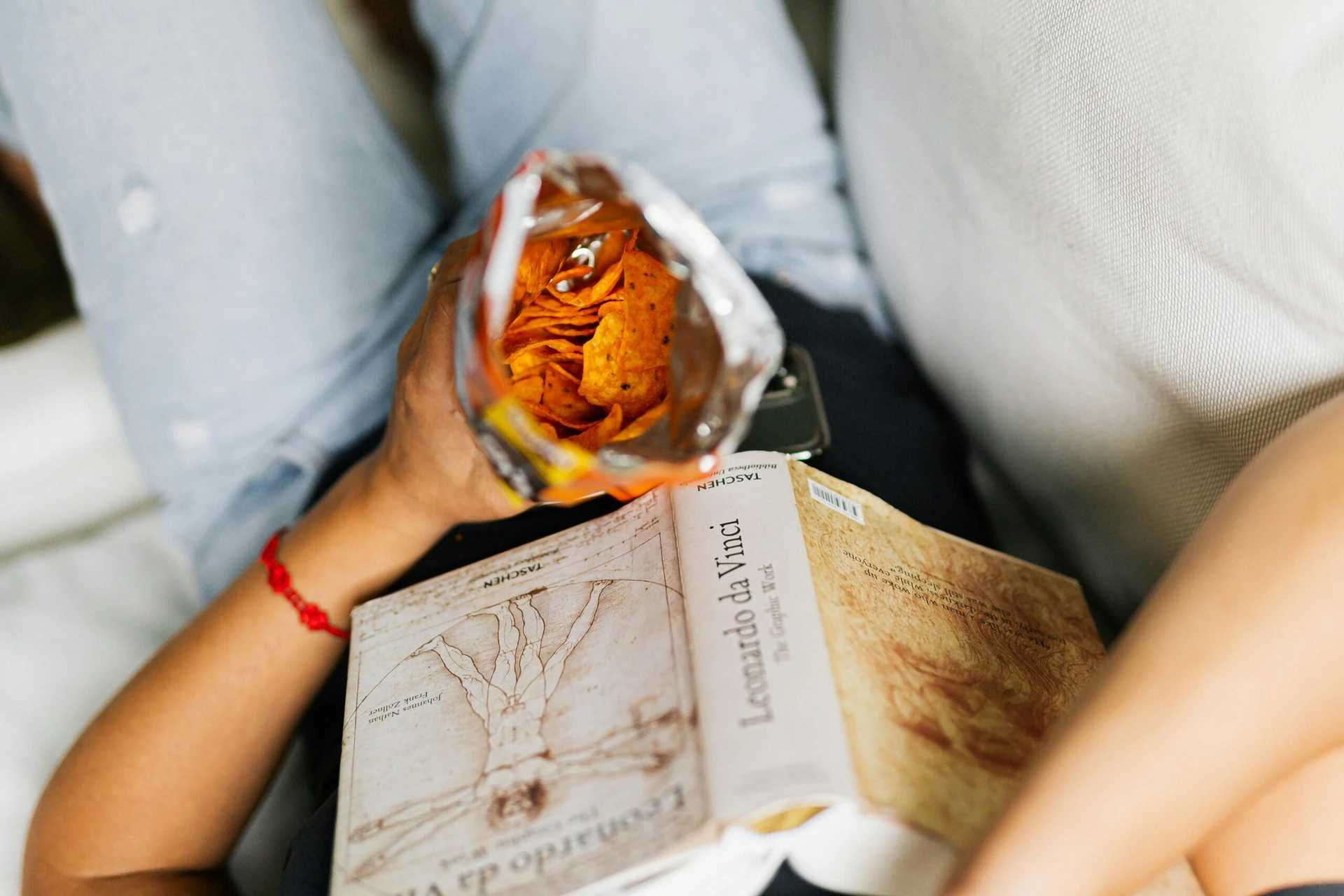
It’s not exactly emotional eating. It’s more like your mouth is just… bored. And the next thing you know, you’ve eaten an entire bag of chips and a questionable number of cookies. Let’s be honest, we’ve all been there.
Irusu (居留守)
@mooo.nakaa I will starve in that room until they’re gone 😭 #mooonakaa
♬ original sound – Munaka❤️ Your TikTok bestie✨
Okay, this one is a little sneaky… and we love it.
Irusu refers to pretending you’re not home when someone comes to visit, especially if it’s a surprise drop-in. You’re there. Lights are on. You’re holding your breath behind the couch. But to the world? You’re “out.”
It’s like the universal introvert’s power move. No explanation needed. Just a peaceful moment preserved. (And hey, they should’ve texted first, right?)
Komorebi (木漏れ日)

Ah, komorebi. This is one of those poetic words that is just as beautiful as the thing it describes. Komorebi makes you want to take a deep breath and sigh contentedly. It refers to the dappled light that filters through the leaves of trees, creating those magical patterns of sunshine on the ground.
Don’t be mistaken, though, it’s not just “sunlight” or “shade.” Komorebi is much more than that. It’s that in-between—the natural light show that feels calming, nostalgic, and somehow sacred.
Betsubara (別腹)

Ever been completely stuffed after dinner but still had room for cake? Don’t lie—we’ve all been there. Well, we can thank our betsubaras for that. A betsubara is, essentially, a “separate stomach” specifically for sweet treats! Japanese people say it half-jokingly, but let’s be honest, this is probably a scientifically valid concept (we will not accept proof otherwise — let us enjoy our sweet treats!).
So the next time someone raises an eyebrow at your third slice of chocolate cake, just say, “It’s okay, it’ll go in my betsubara.” Problem solved.
Tsundoku (積ん読)

Book lovers, brace yourselves, you’re about to get called out. Tsundoku is the word that lovingly roasts us all. It describes the habit of buying books and letting them pile up unread, whether it’s on your nightstand, bookshelf, or that “to-read” stack that could crush a small animal.
But tsundoku isn’t laziness; it’s aspirational. It says, “One day I’ll read this… probably.” It’s about the dream of being well-read, even if you’re mostly just well-stacked.
Totonou (整う)
This one’s a bit newer, but very trendy in Japan, especially in the big world of sauna culture. Totonou describes the very niche state of feeling mentally and physically put together and harmonious after going through the hot-cold-relax sauna cycle.

It’s more than refreshed, it’s that almost ethereal, otherworldly feeling that feels like your soul has been realigned. It’s the kind of feeling that has you sitting in a post-sauna daze, feeling balanced, calm, and oddly euphoric. Totonou is the endgame. The wellness goal. The vibe.
Nurumayu (ぬるま湯)

Literally, nurumayu means lukewarm water, specifically bathwater that’s not hot enough to relax but not cold enough to shock you. Just… tepid. Mid.
Metaphorically, though? It’s so much more. Nurumayu is often used to describe a life or situation that’s too safe or comfortable, too middle of the road, too comfortable. For example, think of a boring job that pays okay but offers zero challenge or excitement. You’re not drowning, but you’re not swimming either. You’re just floating in Nurumayu.
Shinrinyoku (森林浴)
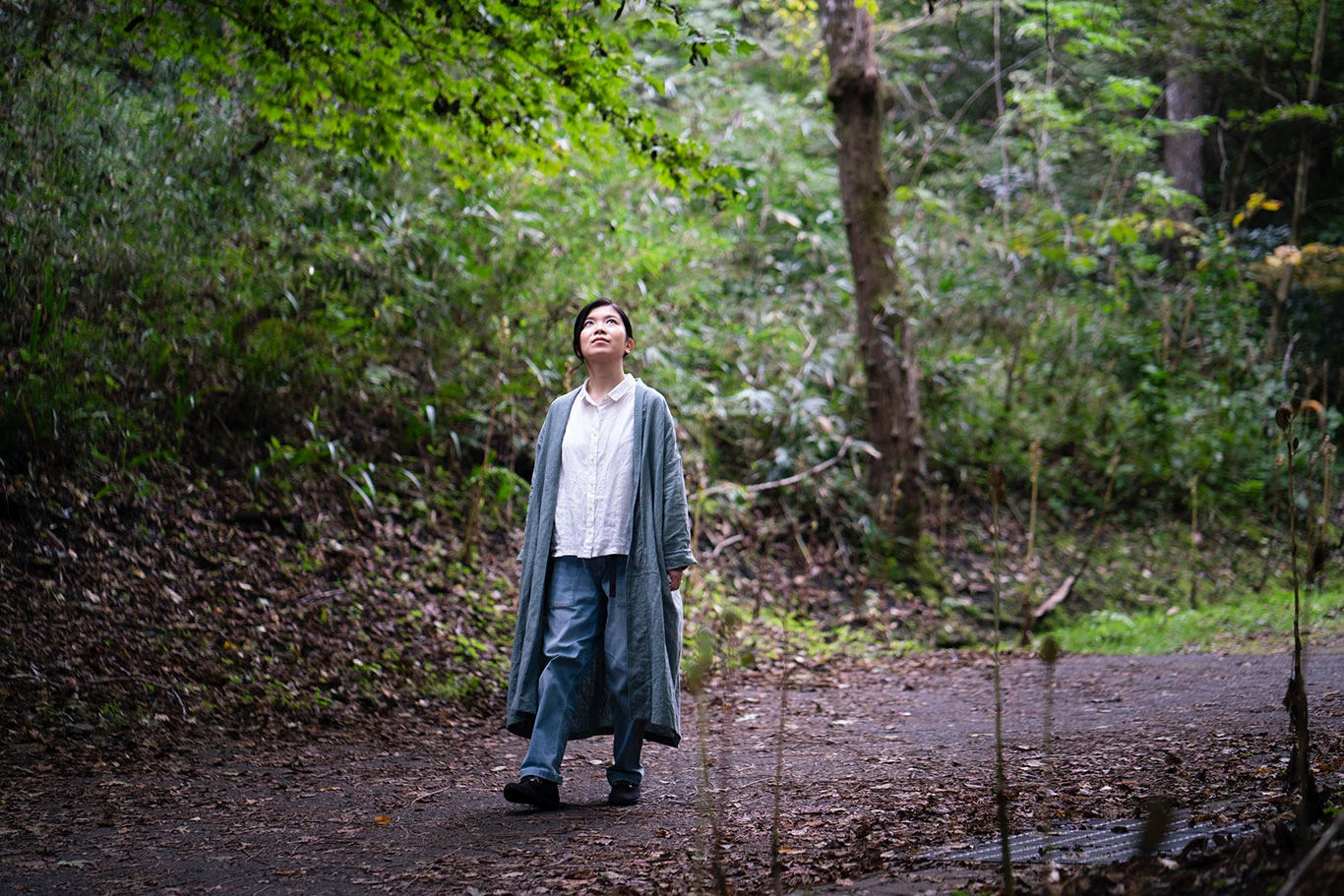
Before “touch grass” was a meme, Japan gave us shinrinyoku, which literally means “forest bathing.” It’s about immersing yourself in nature with all five senses—the smells, the sights, the sounds—letting it all wash over you. We all need a bit of shinrinyoku now and then. Taking our eyes and minds off the screens, the news, the hubbub of the modern world, and just letting ourselves truly embrace the natural world… Who wouldn’t love that?
It’s not hiking. It’s not exercise. It’s restoration. It’s how you recharge your brain and soul in a chaotic world. The world would probably be a better place with a bit more shinrinyoku.
Anmonyaito (あんもにゃいと)
You’re not ready for this one. Brace yourself for maximum cuteness. Anmonyaito comes from a combination of “ammonite” (the spiral fossil) and “nyan” (the Japanese onomatopoeia for a cat’s meow). It is used to describe that adorable curled-up sleeping pose cats make when they lie like a perfect fluffy spiral.
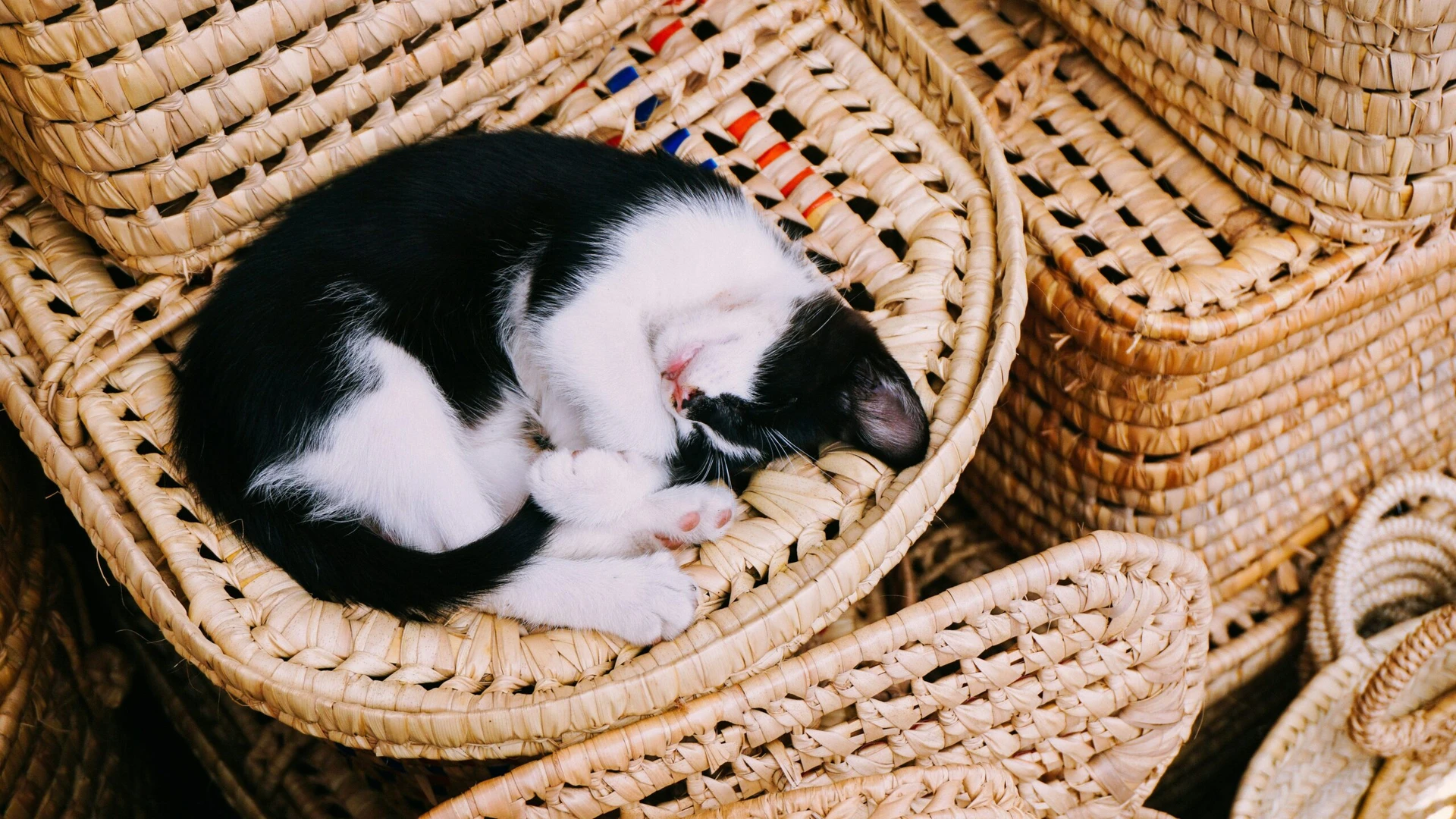
It’s not an official dictionary word, but it’s a popular internet term in Japan and totally deserves a place in our vocabulary. Because honestly, anmonyaito might be the single most adorable thing you can witness.
Batankyu (バタンキュー)
Finally, we’ve got batankyu, an onomatopoeic gem that combines the sound of collapsing (batan) with the cue of snoring (kyu). Together, they paint the picture of someone who flops onto the bed and instantly falls asleep from sheer exhaustion. Once again, we’ve all been there.

It’s the post-party crash. The after-work collapse. The “I didn’t even take off my pants” nap. Whether you’ve pulled an all-nighter or wrangled toddlers all day, batankyu is the word for that glorious moment you finally give in. Maybe you even sleep like anmonyaito, curled up in a fetal position as the worries of the day disappear around you.
Join our community of 1.5M readers
Like this story? You'll love our free weekly magazine.





